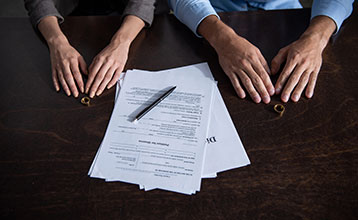How is a business divided in a divorce?
Before jumping into this topic we should first start by discussing the concept of matrimonial assets. Under the Women’s Charter, matrimonial assets include:
- Assets acquired by one or both parties during the marriage.
- Assets used by one or both parties or their children during the marriage.
- Assets acquired before the marriage but substantially improved in quality during the marriage.
- Assets excluded from the definition of matrimonial assets include gifts or inheritance that have not been improved or used for the family.
How is a business or company divided in a divorce?
If a spouse owns a company or a business, the business’s financial matters are frequently an area of huge disagreements between divorcing parties.
Most divorce lawyers will start the enquiry by determining if the business is a matrimonial asset and if it has value.
If the business is a matrimonial asset, then the court will consider the value of the business when dividing matrimonial assets.
However, as a business is not a liquid asset, the courts are often faced with the difficult task of dividing the assets. The most frequently used method is where the court gives a valuation to the business, gives a percentage of that value to the other spouse, and then offsets that amount from the pool of matrimonial assets. In this way, the business need not be sold, and the business carries on.
Does the spouse have to sell the business?
The courts do not normally order that a business be sold as a result of the division of assets within a divorce.
Will I have to transfer my shares to my spouse?
It is also rare for the court to transfer shares in a private company to a spouse as part of the divorce. The courts are careful not to do anything that may adversely affect the running of the business, especially if the other spouse has never had anything to do with the company.
How to value my business?
There are several different ways to determine a company’s value. It is not uncommon for parties to agree to jointly appoint an independent accountant to value the company’s worth.
What if both spouses co-own the business?
If both spouses have an ownership interest in the business, how should you go about “splitting” this interest? There are three methods most couples use when distributing a business interest, and they are:
- First, one party buys out the other.
- Both parties continue to co-own and run the business. This is not common and is typically found in very successful companies where both parties do not want to break up the successful company.
- Agree on the sale of the company to a third party.
Get legal advice early
It is not easy to determine the value of a business. If the business is substantial, its value can be a contentious dispute between the business owner who wants to keep the value low and the spouse who demands that the value be higher.
That is why it is important to have a divorce lawyer who understands how to value a business and competently explain the valuation to the court. Your divorce lawyer should also be able to distinguish between the parties’ direct and indirect contributions to the marriage for the court to decide on the proper division of the business.
Fixed, clear & transparent fees
$1,490
No children, property or maintenance
$2,490
With children, property and maintenance


